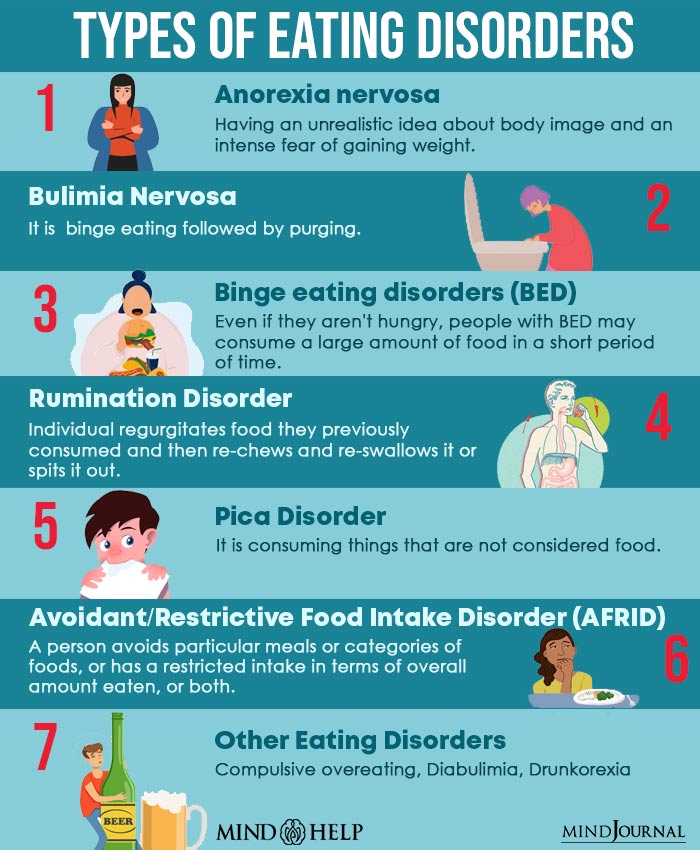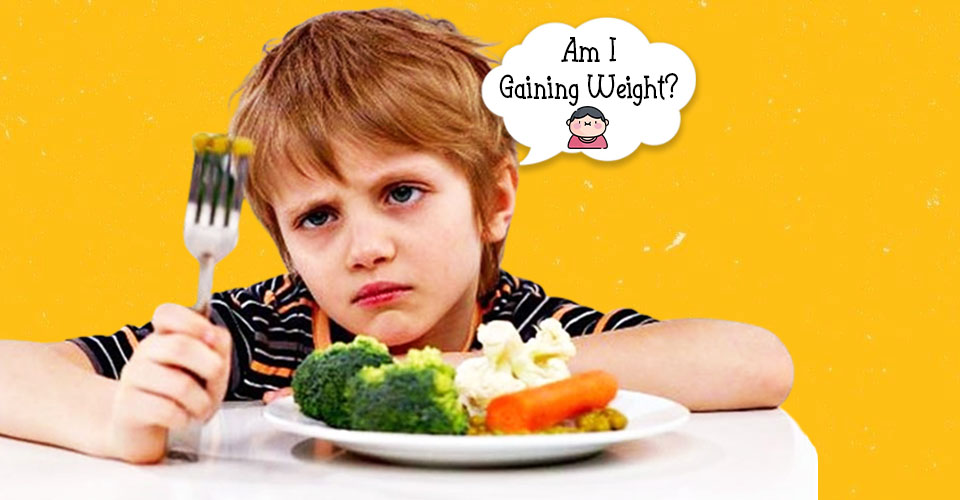Have you ever wondered if your child’s eating habits are normal? Are there signs you might be missing that could indicate a deeper issue?
As parents, we are often the first line of defense in recognizing and addressing our children’s health concerns, including the possibility of an eating disorder. It’s a topic that’s not often discussed openly, yet every parent must be informed.
This blog post aims to bring this critical topic to light. We will uncover the common types of eating disorders in children, reveal the 10 key signs that should be on every parent’s radar, and discuss how to support a child who may be struggling.
Knowledge is power, and with this information, you’ll be better equipped to safeguard your child’s health and well-being.
The Hidden Struggles Of Eating Disorders
Eating disorders in children are serious health problems where kids have a hard time with food and how they feel about their bodies. These aren’t just about eating too little or too much; they involve deep feelings and can affect someone’s whole life.
Kids with eating disorders often feel bad about themselves, want everything to be perfect, or act without thinking. They might have a tough time with friends or family too.
Things like wanting to look a certain way because of what we see on TV or online, or feeling pressure from friends or family, can make kids worry too much about their weight and what they eat.
Doctors say the first signs of an eating disorder can be hard to see. A child might start eating differently, worry a lot about their weight, or act differently with friends. These disorders usually start when kids are teenagers, but they can happen at any age. While girls get them more often, boys can have them too.
Therefore, it’s important to identify the signs as early as possible!
Read more here: Childhood Trauma And Eating Disorders: Shocking Facts You Must Know
Early Signs Of Eating Disorders To Watch Out For
As a parent, you play a crucial role in your child’s health. Understanding the signs of eating disorders in children can help you intervene early.

Here are 10 signs that might suggest your child is struggling with an eating disorder:
1. Your Child May Start To Skip Meals:
It’s normal for kids to skip a meal occasionally, but consistent meal skipping is worrisome. They might say they’re not hungry, they ate earlier, or feel sick. This behavior can be an attempt to avoid eating without drawing attention.
2. There Is A Change In Their Eating Pattern:
While many kids are picky eaters, those with eating disorders may take this to an extreme. This isn’t just disliking broccoli; it’s refusing entire food groups or panicking when faced with certain foods. This behavior often stems from a fear of gaining weight or discomfort with certain textures or flavors.
3. They Start Worrying a Lot About Weight:
Children expressing constant concern about their weight, talking about dieting, or expressing fear of gaining weight need attention. This worry often includes frequent weighing, obsessing over calorie intake, and expressing dissatisfaction with their body, regardless of their actual size or weight.
4. Children May Start Keeping Eating As A Secret:
Discovering hidden food wrappers. Noticing large amounts of food disappearing quickly. Finding stashes of food in their room. These can be signs your child is eating in secret. This behavior often reflects feelings of shame or guilt about eating.
5. Sudden Weight Gain or Loss:
Rapid weight loss or gain is a significant warning sign of eating disorders in children. In cases like anorexia, you might notice your child becoming noticeably thinner. With a binge eating disorder, you might see rapid weight gain.
Read more here: What Is Binge Eating Disorder?
6. Exercising Till There Is A Burnout:
While being active is healthy, excessive exercise, especially if your child is exercising to the point of exhaustion, skipping social events to work out, or exercising even when injured or ill, can be a sign of an eating disorder.
7. Sudden Changes In The Mood
Changes in mood, such as increased irritability, sadness, or withdrawal, especially around mealtimes or when discussing food and body image, can be related to childhood eating disorders. These mood changes often occur due to the psychological stress associated with eating disorders.
8. You May Start To Notice Physical Issues
Eating disorders in children can lead to physical issues like dizziness, stomach aches, or feeling cold all the time due to poor nutrition. Other signs include fainting spells, disruption in menstrual cycles, or trouble concentrating.
9. They Become Socially Isolated
If your child starts pulling away from friends and avoiding social activities (especially those involving food), it could be due to the anxiety and stress associated with eating. This withdrawal can also extend to a general loss of interest in hobbies and activities they once enjoyed.
10. Kids Begin Developing Strange Eating Habits:
This sign involves unusual behaviors around food and eating. Children may start cutting their food into very small pieces, eating at an abnormally slow pace, or following strict, self-imposed rules about eating.
They might only eat foods of a certain color or refuse to eat foods that touch each other on the plate. These behaviors often serve as coping mechanisms, providing a sense of control in a world where they feel they have little control over anything else.
Recognizing these signs of eating disorders in children is a critical step in seeking timely support for your child. It’s important to approach these concerns with empathy and to seek professional help for proper diagnosis and treatment.
Read More here: How To Defuse Toddler Tantrums Like A Pro? A Step By Step Guide!
Treating Eating Disorders In Children: Things You Can Do!
When it comes to childhood eating disorders, you play a crucial role in identifying and treatment.
Here’s how you can support your child:
1. First Create a Supportive And Positive Space:
Create a safe, non-judgmental space for conversations. Encourage your child to share their thoughts and feelings. Be an active listener, showing empathy and understanding without immediately jumping to solutions or judgments.
2. Take Some Time And Learn About The Issue:
The more you know about eating disorders, the better equipped you’ll be to help. Read up on the subject, attend workshops, and speak to professionals. This knowledge not only helps in understanding your child’s struggles but also in navigating the recovery process.
3. Blaming Goes Nowhere, Try and Avoid It:
Eating disorders are not caused by one single factor. They are complex conditions that are not anyone’s fault. Avoid blaming your child or yourself. Focus instead on creating a positive and supportive environment.
4. Actively Create A Realistic Body Image:
Model a healthy attitude towards food and body image. Avoid making negative comments about your own or others’ bodies. Encourage your child to see their body as a source of strength and health, rather than just appearance. Over time, you will start to notice a difference in their thought process.
5. You Don’t Have To Do It Alone:
It’s vital to involve healthcare professionals early on. They can provide a proper diagnosis and guide you through treatment options. This could include therapists, dietitians, and pediatricians specializing in eating disorders.
6. Patience Is A Virtue, Especially In This Case:
Recovery from eating disorders in children is often a slow process with ups and downs. Be patient with your child and persistent in your support. Celebrate small steps of progress and stay positive about the future.
7. Take Care of Yourself For Your Child:
Supporting a child with an eating disorder can be stressful. Make sure to take care of your own mental and emotional well-being. Seek support for yourself, and remember, it’s okay to ask for help.
While parents play a crucial role, there are limitations to what you can do. Recognize when professional help is needed and be open to various treatment options. Your role is to provide support and love, not to diagnose or treat the disorder.
Navigating a child’s eating disorder can be challenging, but with the right approach, you can make a significant positive impact on their recovery journey.
Read More here: Self Care Strategies For Parents Whose Cups Are Too Full From Parenting
A Word From Mind Family
As we conclude this comprehensive guide it’s important to remember that as parents, you’re not alone in this journey. At Mind Family, we understand the complexities and challenges that come with navigating a child’s eating disorder.
Understanding these signs and knowing how to respond is a powerful tool in your parenting arsenal. It’s about being vigilant, but also about fostering an environment of open communication and unconditional support.
Your role as a parent is to provide a stable and supportive backdrop against which your child can battle their disorder. This includes educating yourself about the condition, avoiding blame, promoting a positive body image, and seeking professional help when necessary.
At Mind Family, we believe in the strength of families and the resilience of the human spirit. With the right support, information, and care, recovery is not just a possibility, but a hopeful expectation.
We stand with you in this journey, offering resources, support, and a community that understands your struggles. Remember, recognizing the signs is just the beginning!
Frequently Asked Questions (FAQs)
1. What are childhood eating disorders?
Childhood eating disorders are serious health conditions where children struggle with their relationship with food and body image. These disorders go beyond just eating too much or too little and often involve deep emotional issues affecting their overall well-being.
2. What are the signs of eating disorders in children?
Signs of eating disorders in children include skipping meals, extreme changes in eating patterns, constant worry about weight, secretive eating behaviors, sudden weight changes, excessive exercise, mood swings, physical issues like dizziness or fainting, social withdrawal, and unusual eating habits.
3. How to treat childhood eating disorders?
Treatment for childhood eating disorders involves creating a supportive environment, educating oneself about the issue, avoiding blame, promoting a positive body image, seeking professional help from healthcare professionals such as therapists and dietitians, being patient throughout the recovery process, taking care of one’s own well-being, and recognizing when professional intervention is necessary.















Leave a Reply